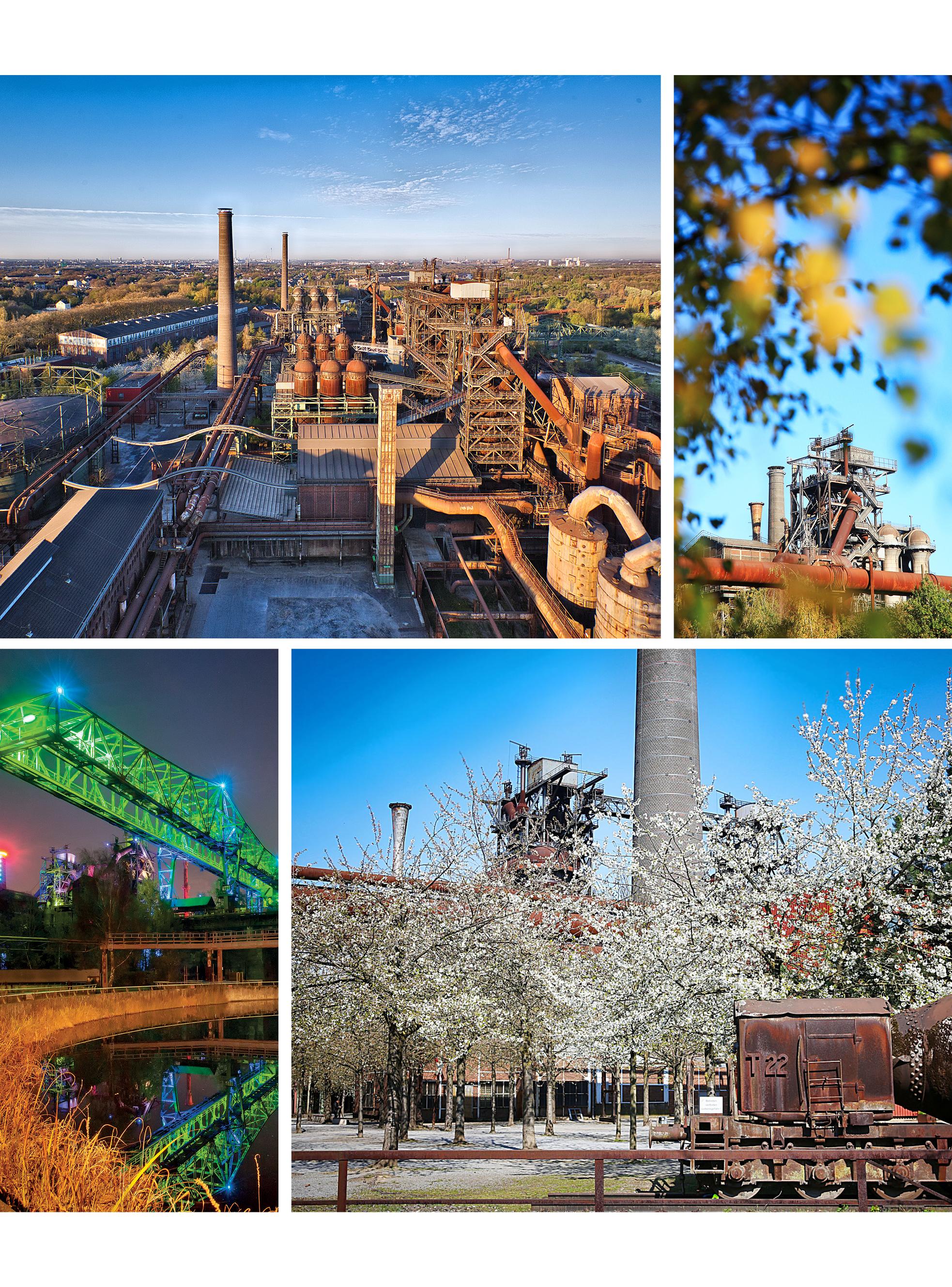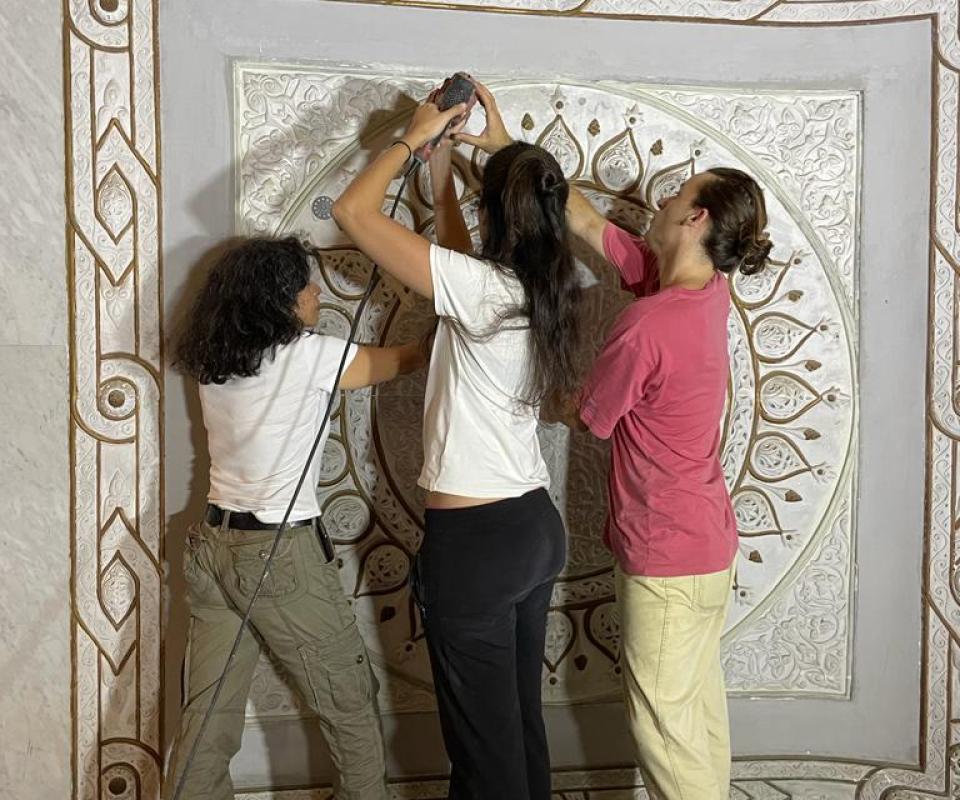
A legacy of love for Germany’s industrial heartland
Belgian railway employee Roland Bartholomé’s lifelong passion for heavy engineering fuelled a desire to help preserve for future generations the vast industrial and mining heritage of Germany’s Ruhr valley. The King Baudouin Foundation made that a reality.
Visitors touring the disused mines, factories, and reclaimed parks of Germany’s renowned Industrial Heritage Trail may be unaware that the enthusiasm and generosity of one of their Belgian neighbours is contributing to their cultural experience. But thanks to a KBF-managed Fund established in his name, Roland Bartholomé’s commitment to this key part of European history lives on.
Bartholomé, who lived in Welkenraedt, near the German border, was a technical enthusiast. Not only did he work for NMBS/SNCB, the Belgian national rail operator, but in his spare time he had also collected more than 50 miniature railways. When his health deteriorated, and having no children, he formed a plan that after his death he wanted his assets used to conserve, restore and promote European mining and industrial heritage, principally in Germany’s Ruhr valley.
As KBF is known for its network and experience in dealing with philanthropy across borders – recently expanded with the launch of our newest alliance, Myriad – his banker put him in touch. The Foundation then guided him through the simple process of setting up a Named Fund. “He was clear that the most interesting projects were in Germany,” said KBF Honorary Director Dominique Allard, who was involved in establishing the Roland Bartholomé Fund four years ago. “He had a very concrete vision of what he wanted.”
Dozens of sites celebrate the Ruhr’s manufacturing past. A 400-km route around the area, between Duisburg and Hamm, takes in former coal mines, steelworks, factories, and power stations which have been transformed into museums, monuments, art installations, leisure parks, green spaces and event venues.
On his death in his 60s, the Fund lost no time in approaching projects in places Bartholomé had indicated should be priority beneficiaries. In 2020 and 2021, the Fund supported four sites on the Industrial Heritage Trail (Route Industriekultur), with a total of 172,000 euros:
- Duisburg-North Landscape Park
The disused steel factory has become a vast multi-functional free public park with everything from tours to bike trails to an indoor diving basin. The Fund is involved in a two-stage project to make the site’s former western gas purification plant accessible to the public as part of a guided tour. Works include making it safe for traffic, creating an emergency exit and repairing the façade.
- Zollverein Coal Mine Industrial Complex, Essen
During its active industrial period, this 100-hectare (1m m²) complex was the largest coal mine in the world. A UNESCO World Heritage Site since 2001, the site is now a cultural centre that includes historical tours, exhibitions, concerts, festivals and sports. Money from the Fund is contributing to the continuing development and maintenance of a visitor app, which includes navigation, GPS tours, and virtual and augmented reality functions.
- Henrichshütte iron and steelworks museum, Hattingen
Once an employer of 10,000 workers, there was significant resistance against its closure in 1987, but Henrichshütte has since been reinvented as a museum set amid landscapes left to re-wild. The Fund has contributed to the acquisition of an identical version of the ‘cupola’ Earth observation dome, which was docked at the International Space Station. It will also help with research for upcoming projects including an exhibition on insects and a focus on industrial nature, as the surrounding area provides vital habitats for plants and animals.
- German Mining Museum Bochum
“Mr Bartholomé was clear that the most interesting projects were in Germany. He had a very concrete vision of what he wanted.”
Founded in 1930 as the Leibniz Research Museum for Geo-resources, the museum’s work includes preserving a wide range of photographic records on the history of mining. The Fund will assist with work being done to catalogue the collections and make them accessible online for researchers and the public.
Individual philanthropy with KBF
A Named Fund managed by the KBF is a flexible way of making a long-term contribution to an area that is close to the donor’s heart. The founder chooses the aims that the Fund will pursue, how long it will operate, and how support is provided and administered.
Other stories
Inspiring engagement!

Beirut's former glory restored
Natural Heritage
“Our mission is not to rebuild something and then leave. It’s to help build a structural transfer of knowledge, so that restoration can be sustainable.”
Other press releases

This summer’s top ten - Summer with the KBF
Holidays in Belgium? The KBF invites you to discover 10 exhibitions, monuments and natural sites. A great way to spend a pleasant and refreshing summer!